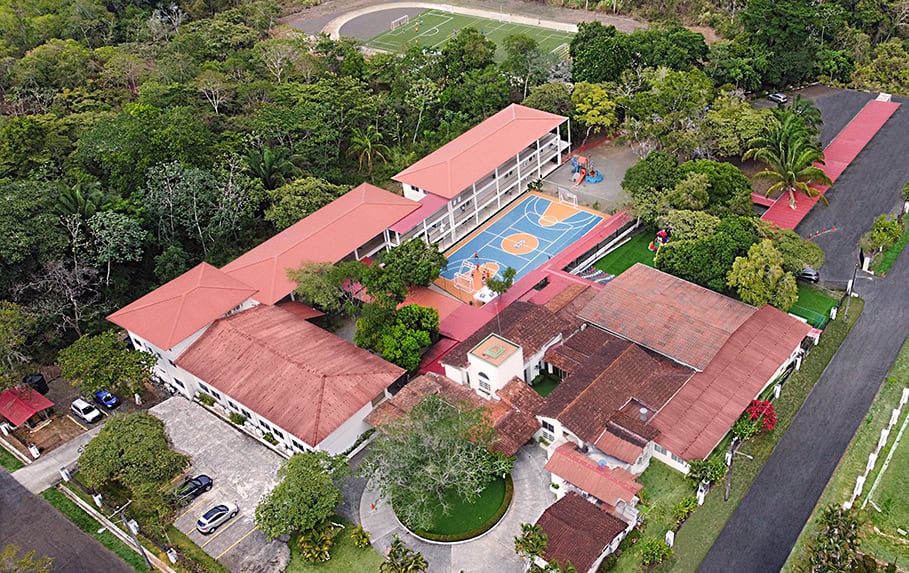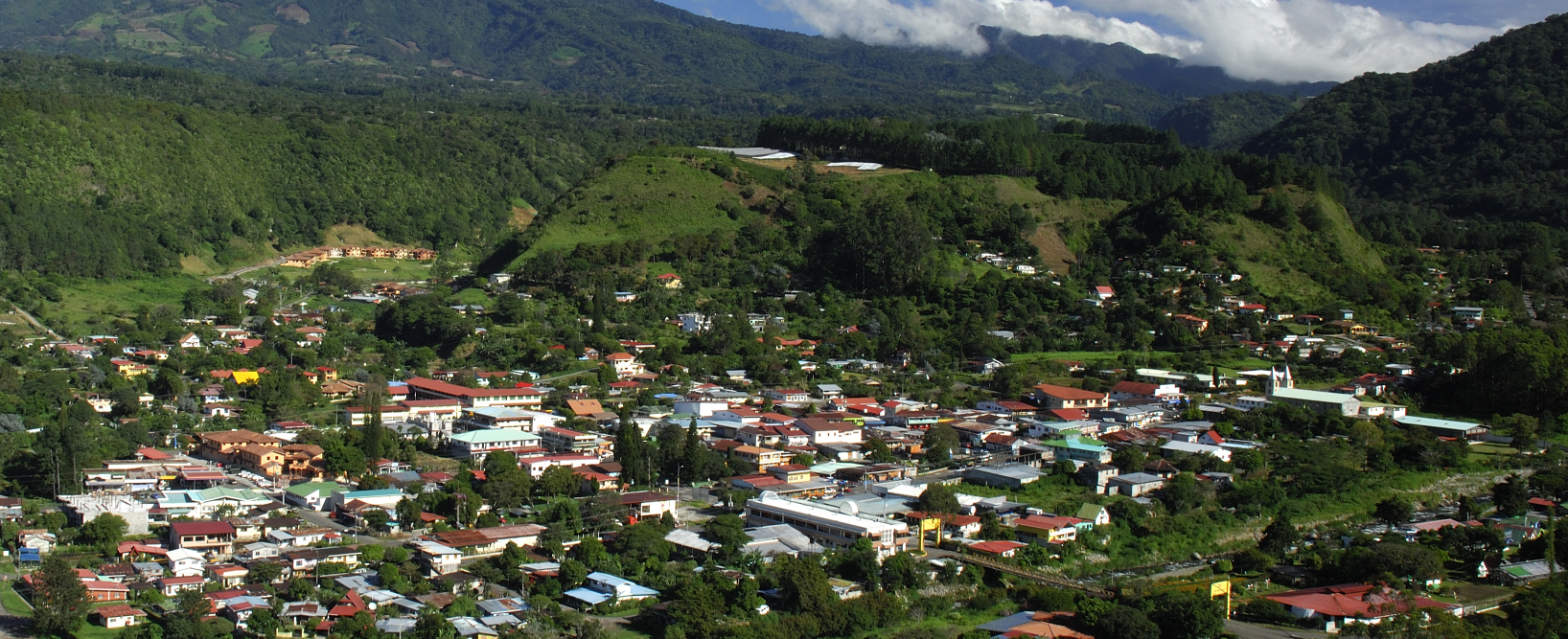As if moving abroad isn’t stressful enough, finding the right school for your children will be challenging! The #1 question for anyone looking to move to Panama with children is, “Does Panama have a good education system?”
Panama has many good private and international schools. Panama’s private schools are among the top in Central America, and many are comparable with the quality of education offered by schools in North America and Europe.
On the other hand, public education in Panama is frequently criticized for its quality or lack thereof and is only compulsory until the 9th grade. Public school is free of charge for all students, but Panama does require parents to pay for uniforms (all public school students must wear uniforms), books, and school supplies. Public high schools can have a few additional fees, but tuition is also free. It probably goes without saying that all subjects are taught in Spanish, but English is included in the curriculum in the upper grades.
There is a helpful site where you can personalize your preferences on their opinion of the top 5 schools in Panama City: International Schools Database based on your child’s age, city, and the language(s) school is taught in.
The schools on the International School Database are all in or around Panama City, so more homework is required if you consider living outside the city, in the interior, or beyond. A quick Google search, such as Bilingual Schools in Panama will give you many more options.
Important Things to Consider..
1) Accredited…and most important…Is it accredited, and will the grades transfer if you choose to move on or back to your home country?
2) Location: Most of the top schools are located in Panama City; however, there are many good schools in and around many popular expat relocation areas. Although the city is small, even a short commute in distance can take a good chunk out of the day as traffic to/from and in the city can be horrendous!
3) Transportation: Most of these schools provide transportation at an additional cost. The new expansions of the metro system and highway improvements will greatly contribute to more efficient mobility in the near future.
4) Extracurricular activities: Just like in the US, there are many extracurricular activities to choose from in most schools. Futbol (Soccer) is very popular of course but many have others to choose from as well. Community Service (Social Service) here is a graduation requirement just as in the US and many of the projects are coordinated by the school so that the students can do them together. The goal here is to have the students prepared to be able to compete internationally for university placement.
5) Reputation: Be sure to do your homework when checking out the right school for your children. After all, private schools are mostly for-profit so you don’t want your child to just be in a school that presents itself as something special but it’s nothing more than a bunch of smoke and mirrors. Ask to visit or sit in on some classes or go to an event where you can talk to other parents.
6) Cost: Costs vary greatly. According to an article in Live and Invest Overseas, the average monthly cost of a foreigner-friendly private primary school in Panama is about US$500/month per child, with a variety of additional yearly/registration fees. Fees can range from nominal (US$150 per year) to substantial. There are smaller private schools costing a bit less such as those that cater to the neighborhood in which they are located such as La Salle, El Javier, Maria Imaculada, Las Esclavas, St. Mary´s, Colegio Episcopal. There is also Crossroads Christian School in Clayton and just over the Bridge of the Americas is Howard Kids (which only goes to 8th grade) as well as Lycée Français Paul Gauguin where they teach in French, English, and Spanish. (See below for more)
As an example of tuition in Panama City, according to the state.gov website, the International School of Panama is a non-profit educational institution that reinvests all income from tuition and fees into its programs and infrastructure and is considered one of the best international schools in Panama. Annual tuition rates for the 2022-2023 school year are as follows:
PK3: USD $9,565
PK4 – grade 5: USD $14,609
Grades 6-8: USD $16,026
Grades 9-12: USD $18,120.
7) Language: Most teach at least partially in English with it being the mandatory first language in some; however, subjects such as Civics are taught in Spanish. There is generally additional support available (at another additional cost, of course) to help your child get up to speed with their Spanish. It is amazing how the younger one is, the faster acquisition occurs. (I am so jealous!)
8) School Calendar: Other than the British and American schools, most schools follow the Panamanian calendar, which is loosely from February (depending on the dates of Carnival…yes, you read correctly, that most un-sober festival of the year dictates the school calendar! (Bienvenida a Panama!) through November/December. There are so many holidays in November that most real teaching ends before then with mostly just testing until the end of the actual school year, which is around mid-December.
This is something to seriously consider and research since students from North American calendar curriculum could likely be required to stay back in their previous grade and/or pay a substantial fee to “catch up” over the summer.
In addition, although most private schools must be MEDUCA (Panama’s Department of Education) certified/approved, you still need to be sure that any and all credits are transferrable if you move to a different school, move back home, or move on to your next favorite country.
9) Diversity: Your child will be in the ultimate diverse environment. There will be students from around the globe speaking a multitude of 1st through as many as maybe six other languages. The other plus will be their exposure to all of those cultures. In one International school, a teacher said students from over 40 countries spoke more than 20 different languages, including multiple Chinese dialects and some indigenous languages. What a great experience for your child!
10) Religion: Unlike the US, there is no separation of Church and State. Panama is considered a Catholic country. Religious holidays, therefore, dictate the teaching calendar; however, all religions and their customs and holidays are respected.
Comparing International Schools
Comparing international schools can be challenging, as there are many factors to consider and different sources of information to consult. Some of the steps you can take to compare international schools are:
Find every international school available in the area(s) to which you are considering using a database, a directory, or a simple Google search.
Make a spreadsheet prioritizing every detail about each school, such as the curriculum, the fees, the facilities, the teachers, the accreditation, the student outcomes, distance, and the feedback from parents and students.
Tailor your results by filtering or ranking the schools based on your preferences and requirements, such as the language of instruction, the location, the size, or the cost.
Create a shortlist of your best candidates and add them to a list of favorites.
Compare your favorites by weighing up their pros and cons and looking at their key points side by side.
Choose ‘The Final Three’ and contact them with a list of final questions and your details. Visit them in person if possible and make your final choice.
You can use online tools such as spreadsheets or databases to help you organize and compare information about different schools. You can also use international tests such as PISA, Cambridge, TIMSS or PIRLS to get an idea of how well the schools perform academically compared to other countries or regions. However, you should also consider other aspects of the school that may not be reflected in test scores, such as the culture, the environment, the diversity, or the values.
A school’s reputation may depend on various factors, such as the curriculum, the facilities, the teachers, the accreditation, the student outcomes, and the feedback from parents and students.
There are many international schools in Panama, especially in Panama City. Following is a “sample” of some of Panama’s private and international schools. There are many other schools besides what is on the list below.
International Schools in Panama City
Oxford International School (San Francisco)
Oxford School, Panama (not to be confused with the above) Six Campuses in various areas of Panama
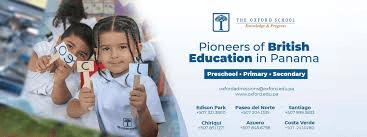
York International School (San Francisco)
St. George International School (through 6th grade) (Brisas del Golf)
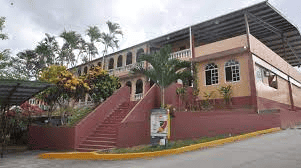
The Casco School (Casco Viejo, Costa del Este, Albrook)
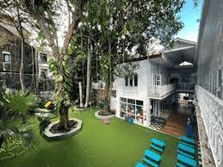
Smart Academy, Panama (Brisas del Golf)
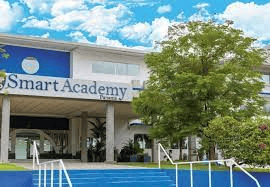
AIP Academia Interamericana Panama (Costa del Este)
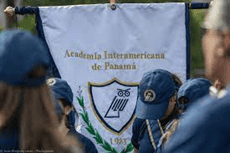
Episcopal Schools (El Carmen)
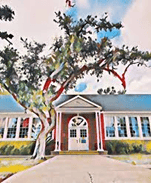
DS International School (El Cangrejo) Bilingual and includes a home school option (Also a campus in David)
SCALA International School (Brisas del Golf and Panama City.)

Knightsbridge Schools International Panama, (Panama Pacifico) is an IB World School
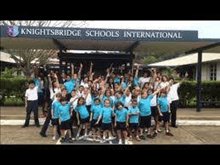
Colegio San Agustin (Costa Del Este)
King’s College, (Clayton) is a British school that follows the English National Curriculum and offers IGCSE and A-levels. See their fees here
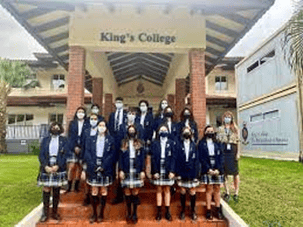
International School of Panama, (San Miguelito) an American school that offers the IB Diploma Programme and Advanced Placement courses. See fees here
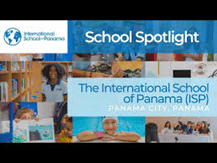
Isaac Rabin International School(Clayton)
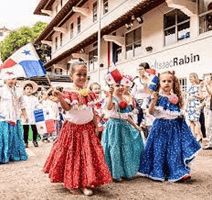
Lycée Français Paul Gaugin (French, Spanish, English) Panama Pacifico. See their fees here
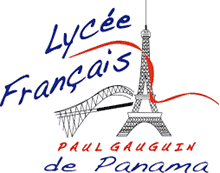
The Metropolitan School of Panama, (offers the IB Programmes Balboa Academy, (City of Knowledge). is also an American school that offers a bilingual education in English and Spanish.
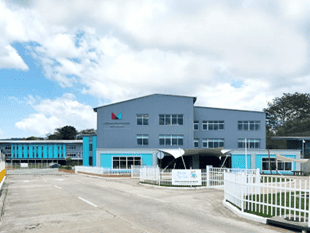
Boston School International (English, Spanish, Mandarin) (Balboa)
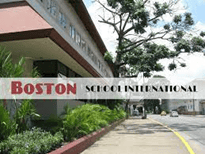
Crossroads Christian School (Clayton, in Panama City)

SABIS (Costa Verde)
Thomas Jefferson Bilingual School (Cerro Azul)
West of Panama City
Panama Coast International School (English) Gorgona (near Coronado)
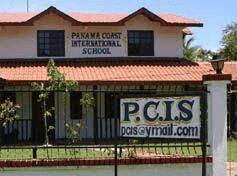
Creating Center (at Buenaventura in Rio Hato) see fees here
Coronado International School (Coronado) see fees here
Five Star Academy (near Coronado) see fees here
SCALA International School (Vacomante)
SCALA International School (Penonome)
Oxford School, Panama (David and Santiago)
International Academy (Boquete)
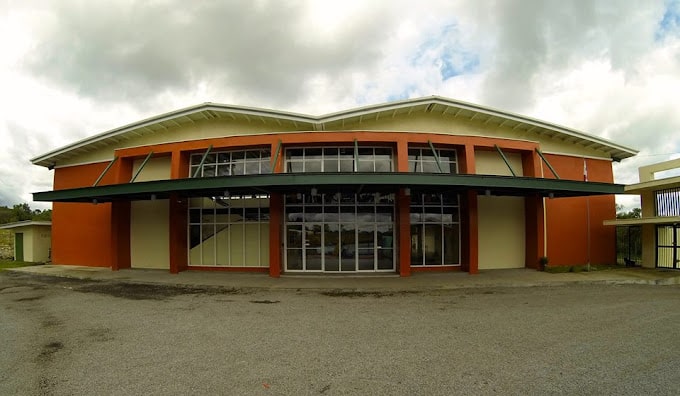
DS International School (David) is Bilingual and includes a home-school option.
On the Caribbean coast….
Tangerine International School (Bocas del Toro)
Colon Caribbean International School (English, Spanish)
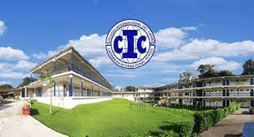
Online School Options
Another way to go is online education/home school. Institutions such as Florida Virtual School allow students to not only study from wherever they are but also go at their own pace, makeup credits, and even take IB, Advanced Placement, and Dual Enrollment Courses. Florida residents pay nothing; others pay a small fee but many online options have started since the pandemic.
Whatever direction you choose, do your homework and ensure that the school is properly accredited and their grades are transferable.
Many of these primary and secondary international schools have been recognized for their academic excellence, international diversity, qualified staff, and modern facilities.
College – University
One last thing to remember might be University options in Panama if your child is already in High School. Panama has two very highly qualified Universities: FSU (Florida State University) and LSU (Louisiana State University). Especially since the pandemic, their options have increased tenfold. Originally, you could attend the only two years available in Panama and then transfer to their US campuses for your final two years. Now, there are many options to complete your studies in Panama, at in-person classes or online.
In Conclusion
As you can see, there are many options for private or international schools in Panama.
If you are moving to Panama with children or grandchildren, research schools and their prices before moving to Panama.
Ideally, you should talk to other parents who have their children in the school to ask what they like and don’t like about the school.
Once you pay the tuition, there are no refunds if the school is not a good fit for your child, so it’s really important to pick the right school.
See this interview with a couple about enrolling their son in an international school and what was required. Unfortunately, we had some audio difficulties but you will still be able to gain some valuable insights about enrolling your child in school in Panama



